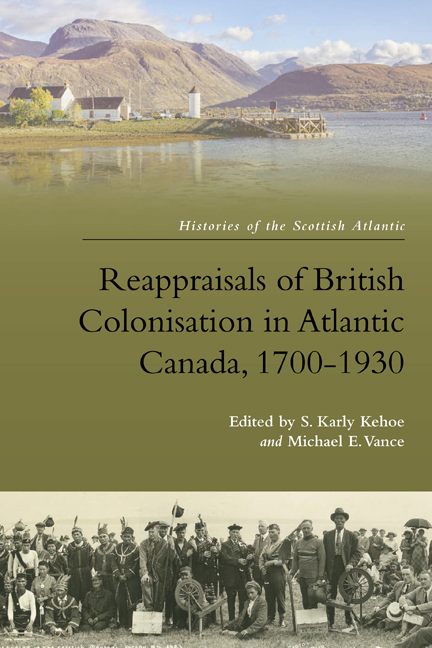9 - Fenian Ghosts: The Spectre of Irish Republicanism in Ethnic Relations in Newfoundland
Published online by Cambridge University Press: 10 October 2020
Summary
In the thriving town of Port de Grave, Newfoundland, a small, desolate graveyard marks the spot where a chapel once stood to serve the spiritual needs of local Irish Catholics. In the 1860s, they comprised one-third of the town's population; but by the turn of the century, their numbers had dwindled to one single resident, earning Port de Grave the reputation of ‘the town that drove out the Catholics’. They and their English Protestant neighbours had been caught up in ethno-religious tensions that often cut across class solidarity within the fishing population of the ethnically mixed Conception Bay area, north-west of the capital of St John’s. The Port de Grave incident was a local manifestation of the ‘Fenian scare’ experienced by various British North American colonies in the mid-1860s. Because no archival evidence has surfaced of a formal Fenian presence in Newfoundland, there is a tendency in the historiography to dis-miss such moments of tension as mere sectarianism on the part of fishers, tradespeople and the working poor, who were supposedly gulled into struggle by local religious and political leaders. Yet ordinary Irish Catholics, particularly in Conception Bay and St John’s, were attuned to broader trends in Irish republican nationalism and drew from them understandings of how to fight for greater equity in the Newfoundland context. Further, their efforts to assert their claims were cause for concern among English Protestants of all classes.
In post-colonial discourse in Canada, ‘white settler society’ is represented as if it were homogeneous and universally privileged. Yet there was considerable diversity among white settlers, and unequal access to power even among those who came from the ‘British Isles’ – itself, a loaded term that requires intersectional analysis on the bases of gender, class, religion, ethnicity and region. In Newfoundland, there were ethnic tensions between English Protestants and Irish Catholics throughout the nineteenth century and into the twentieth, especially in mixed areas such as St John's and Conception Bay. In both areas, Irish Catholics positioned themselves as marginalised by English Protestant privilege, while English Protestants of all classes reasserted the Protestant nature of the colony/dominion.
- Type
- Chapter
- Information
- Publisher: Edinburgh University PressPrint publication year: 2020



